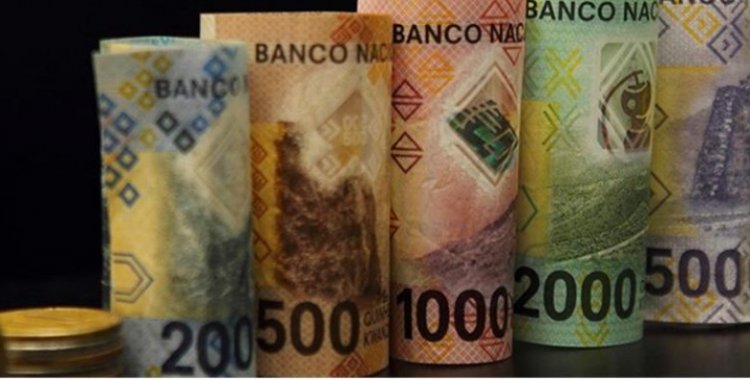According to Wilson Chimuco, the devaluation of the kwanza "is being justified, on the one hand, by the reduction in the supply of currencies in the foreign exchange market by the National Treasury, which in 2022 held a share of more than 30 percent of the supply of currencies".
"But, in the first five months of the year, it had to reduce the supply of currency to meet the payment of debt service", said the economist in statements to Lusa.
Chimuco also referred that the National Treasury is, on the other hand, with "improvement in liquidity levels", a fact that has given commercial banks room to offer "increasingly higher exchange rates in currency auctions".
Banco Fomento Angola (BFA) considered on Monday that the kwanza will appreciate in the medium term, despite the fall of almost 10 percent against the dollar last week, accumulating losses of 23.75 percent since the beginning of the year.
"Last week was marked by the continued depreciation of the kwanza against the dollar and against the euro", write the BFA analysts in their weekly commentary on market developments, pointing to falls of 9.87 percent against the dollar and 9.95 percent against the euro.
The kwanza ended last week at 660.6 kwanzas per dollar and 711.4 kwanzas per euro, and the BFA says that "the pace of decline of the kwanza does not seem to be slowing down".
The Government has decided, since 2 June, to partially withdraw subsidies for gasoline, whose liter now costs 300 kwanzas against the previous 160 kwanzas, with reports already of rising prices of food and other services.
Tariffs for taxi drivers and motorcycle taxi drivers will be subsidized, with the attribution of personalized cards, continuing to pay 160 kwanzas per liter of gasoline, with the State covering the difference.
In Wilson Chimuco's view, the inflation target for this year will have to be revised in view of the current increase in product prices.
"If nothing is done, prices will increase", highlighted the expert, arguing: "Because the level of imports will have to reduce and domestic production is not yet capable of meeting the country's needs".
"And yes, the inflation target for this year has to be reviewed", he stressed.
He also defended the need for the Government to improve communication and deconcentrate the process of granting subsidized cards to public transport service operators, a process that has generated several protests from them.
"It is the best option you have to reduce the constraints that have been witnessed and avoid price speculation", concluded the economist.
Since last week, Angola has registered several protests by taxi drivers and motorcycle taxi drivers against the rise in fuel prices, with reports of injuries and even deaths.
A group of activists and members of civil society called for a national demonstration for June 17 against the increase in fuel prices, the end of street vending and the Law on Non-Governmental Organizations.







